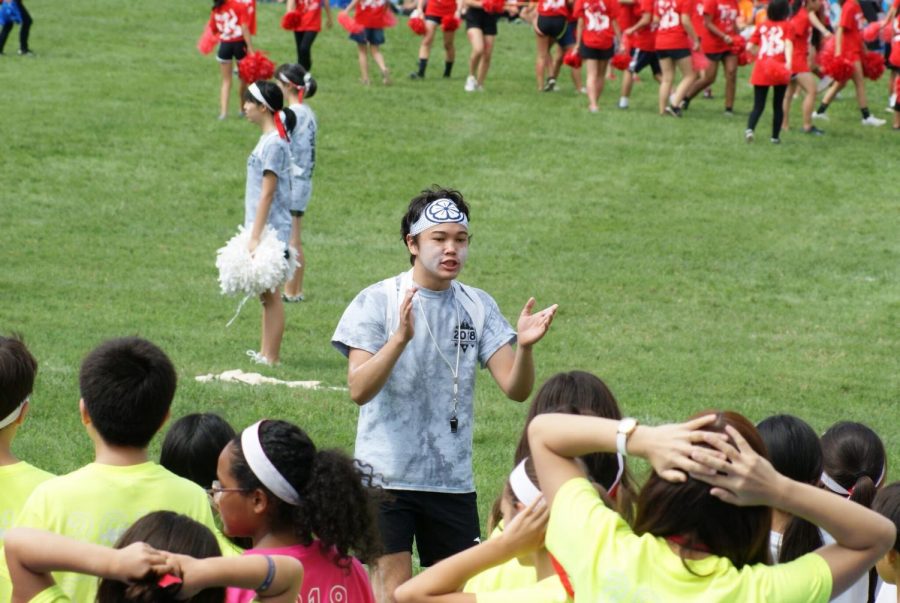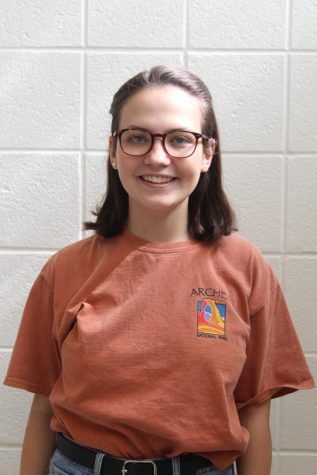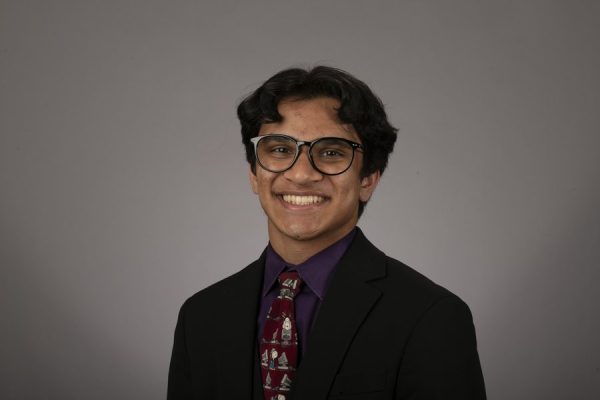Students spend Saturdays attending language schools
Senior Arthur Varner hypes up his team before their next competition. Varner attends the Washington Japanese Language School at Stone Ridge on Saturdays, one of the many language schools attended by Whitman students.
January 23, 2019
For most people, paying no college tuition is unimaginable; even with the best scholarships, few students get full rides. But for junior Qiu Appel, a college education could be free of charge. The only caveat? She’d have to attend college in Germany.
Appel attended the German International School in D.C. for five years every Saturday and was able to earn a Deutsches Sprachdiplom diploma last year after taking a prestigious exam. The diploma signifies German fluency and allows her to study in Germany for free, excluding living costs.
“Even if I don’t know exactly where I want to go to college, it’s reassuring to have another option,” Appel said. “Especially because it’s free.”
Like Appel, many Whitman students attend language schools on Saturdays. While only a few of these schools allow student to attend college for free, they promote an opportunity for students to bolster their resumes, see friends they grew up with and maintain fluency in their native language.
Sophomore Lisa Ota, who attends the Washington Japanese Language School at Stone Ridge, is required to take three courses: Japanese writing, Japanese literature and a Japanese math class. Juniors and seniors can choose to take just one or two, she said.
Students who graduate from the school also earn diplomas, signifying their time at the school. Ota attends largely due to encouragement from her mom who fears that without attending, Ota won’t keep in touch with her culture.
“My mom doesn’t want me to no longer be able to talk to my grandparents,” Lisa said. “I understand, but it’s still a hassle going every Saturday.”
La Escuela Argentina de Washington at the Connelly School of the Holy Child has a similar method.
Junior Micaela Murrugarra has attended the Argentine school each Saturday since she was in second grade and currently takes two classes there. In social studies, she learns about Argentina’s history and economy, and in the equivalent of an English class, she reads and analyzes important Argentine literature, she said.
For Murrugarra, who attends to earn a diploma and to see childhood friends, these classes have also helped her get ahead at Whitman.
“I was able to get a 5 [on the] AP Spanish Culture test without taking the class because I kept up with it on Saturdays,” she said.
Murrugarra’s diploma won’t allow her to study in Argentina, but she’s still planning to put the school on college applications, she said.
This diploma is the same reason freshman Meghan Pollack has also continued at the Argentine school.
“My brother got his diploma from the school,” she said. “It made him stand out [on college applications], because few other people are bilingual and have a diploma proving it.”
Senior Arthur Varner started going to the Japanese school when he was in Kindergarten because his mom didn’t want him lose his Japanese. After elementary school, Varner’s parents stopped forcing him to attend, but he said he enjoyed it so much that he decided to continue going.
“Because I’m half-Japanese, I felt like it was something I had to do to stay in touch with my culture,” Varner said. “But it’s also something that’s really fun, and I like to do.”
In addition to the academic benefits and language improvement, Varner also enjoys seeing his friends, many of whom have been attending the school with him since he started in Kindergarten.
“A lot of my friends from Japanese school end up moving back to Japan, so when I visit [every summer] I can see them,” Varner said. “I have friends all over the world because of it.”








